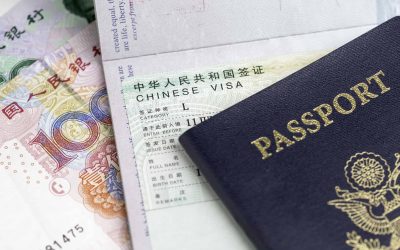Living in China
Start your adventure in ChinaAbout China:
Embarking on a new chapter in a foreign country and adapting to its culture may seem overwhelming, but it doesn’t have to be. We’ve conducted thorough research to address your concerns about living in China, aiming to facilitate a seamless transition for you!
Whether you’ve spent your entire life in one place or have traversed the globe, living in China promises a wholly unique experience. While some culture shock may be inevitable, being well-informed can significantly ease your adjustment.
Common queries people have before moving to China include:
- What is the cost of living?
- Where will I live, and what are the associated costs?
- What are the medical facilities like in China?
- How do I manage payments for daily expenses?
- How do I navigate the internet and use my smartphone in China?
Explore answers to these questions below. If you’re already set on teaching in China, peruse our job board to discover your ideal teaching position!
Cost of living in China
As a teacher, you have a built-in advantage in China. Experienced teachers can make anywhere from $2,000 – $6,000 USD per month, which goes a long way in China.
According to Numbeo, consumer prices in the U.S. are 114.5% higher than they are in China. It also states that rent prices are 268.7% higher in the U.S., restaurant prices are 214% higher in the U.S., and grocery prices are 98.4% higher in the U.S.
This means that even if your salary is on the lower end because you’re a beginning teacher, you will still have plenty of money to save or to spend on local activities, travel, and eating out! China is just like many countries in that the closer you live to a big city, the more money you will make, and the higher your expenses will be.
If your job is in a big city like Shanghai, you could live outside of Shanghai city center and commute every day. Some people don’t mind this, but it really depends on what you place the most value on.
Teaching in China comes with additional perks, including free housing or a housing allowance, complimentary meals, and 1-2 months of PAID vacation. Discover the financial benefits and lifestyle advantages that come with teaching in this dynamic country!
A basic guide to go off of for apartment cost is:
- 6,600 RMB – One bedroom apartment in a tier 1 city
- 3,500 RMB – One bedroom apartment that’s not located in a tier 1 city
Other costs you’ll encounter:
- 38 RMB / Hour – Housekeeper (called an ayi – it is very common to employ an ayi in China)
- 500 RMB – Train ticket (Beijing to Shanghai)
- 2,500 RMB – Electric scooter (very popular in big cities)
- 500 RMB – Bicycle
- 15 RMB – Video game (PlayStation, Xbox, etc.)
- 87 RMB – Internet for 1 month
- 1,600 RMB – Plane ticket (Shanghai to Bangkok, Thailand)
- 6 RMB – Local beer
- 13 RMB – Imported beer
- 284 RMB – Gym/Fitness Center
- 388 RMB – Utilities
Housing in China
If your role doesn’t include complimentary housing, you’ll initially stay in a hotel for 1-2 weeks upon arrival. This period allows you to collaborate with a local realtor, who handles both rentals and purchases, to secure an apartment. Don’t hesitate to seek recommendations from your school, as their extensive network ensures you’re well looked after! We strongly advise pursuing this process in person upon your arrival, rather than online, for the best results.
Medical facilities:
Medical facilities in China offer a range of services, practicing both Western and Chinese medicine. There are three primary clinic types: (1) Western-style hospitals & clinics, (2) regular clinics in local hospitals, and (3) VIP clinics in local hospitals. While treatment remains consistent, factors such as waiting times, facility quality, and cost may differ. It’s crucial to verify coverage with your insurance provider, as expenses incurred at VIP clinics may not be reimbursed.
Despite potential variations, the overall cost of treatment, even in VIP facilities, remains significantly lower than in Western countries. Local clinics/hospitals are accessible for most concerns, especially with a translator in tow. However, for rare or severe injuries requiring advanced equipment, treatment at a specific hospital may be necessary—a reality shared by hospitals worldwide due to the expense of maintaining specialized equipment like CT scanners.
When it comes to prescription medication, pharmacies are abundant, offering common Western OTC drugs. To navigate potential language barriers, it’s advisable to note the medical name rather than the brand name when purchasing (e.g., Ibuprofen instead of Advil).
Money and banking in China
The official Chinese currency is the “Yuan Renminbi,” commonly known as Yuan, CNY, or RMB (Renminbi). It is the exclusive currency for local transactions, and checks are generally not used. Instead, the prevalent method of payment is through WeChat and Alipay, offering convenient and contactless transactions. WeChat, a widely-used communication app, can be linked to a bank account for seamless payments, while Alipay, akin to PayPal, is a popular Chinese payment platform. Apple Pay has also been introduced in China as an additional mobile payment option.
Opening a local bank account is essential, and the process is straightforward, requiring only your passport and a signature. Schools often assist with this process, and Citibank is recognized for its foreigner-friendly services, offering multi-currency accounts that facilitate transactions in both your home currency and Yuan. Check with your employer for any preferred banks. Additionally, inquire with your home bank about potential sister banks in China to reduce international transfer fees.
Consider opening a PayPal account before your arrival, as major Chinese banks usually allow linkage to online banking. This aids in easy money transfers between your Chinese and home bank accounts. While Western Union and wire transfers are available, they tend to incur higher fees.
For currency exchange, plan ahead, as without pay stubs, there are limits for foreigners. Don’t delay if you intend to bring a substantial amount of money home. Alternatively, consider having a Chinese friend assist in currency conversion.
Credit cards such as MasterCard, VISA, and Discover are widely accepted in mainland China, thanks to their association with Union Pay, the authoritative body for banking in China. Ensure you inform your banking provider about your travels to avoid potential issues or restrictions.
Saving money and sending it home
If you plan to save money during your stay in China, wiring it to your home country is a common practice. This process is simplified if someone at your bank speaks English. Be prepared to convert your Yuan into your home currency, and having your pay stubs is crucial to prove tax payments. Without pay stubs, the daily limit for foreigners is $500 USD, emphasizing the importance of planning and not waiting until the last day. Alternatively, Chinese friends can assist in converting money, with a yearly limit of $50,000 USD.
Using credit cards in China
As for credit cards, the Discover card is great for China! They have an arrangement with Union Pay which is the card accepted everywhere in China. This means you can use your Discover card anywhere with NO international transaction fees. VISA is also accepted in some places, while Mastercard is only accepted at high-end restaurants or retailers. Most ATMs will accept MasterCard, Discover or Visa.
Internet & Cellphones
Internet Access and VPNs:
Numerous websites are restricted by the Chinese government, including popular social media platforms like Facebook and Twitter, as well as many foreign news outlets, all shielded by the ‘Great Firewall.’ Fear not, though! You can easily bypass these restrictions by using a Virtual Private Network (VPN), available for as low as $4 per month. While internet speeds within China’s more developed cities are generally fast, accessing content from outside China may be slower than you’re accustomed to.
Mobile Providers:
China boasts three major mobile service providers—China Mobile, China Unicom, and China Telecom. Bringing your own GSM unlocked phone is feasible, and unlocking it can be arranged through your current provider or alternative methods found online. If you opt for a new phone in China, popular brands include Apple, Samsung, Xiaomi, HTC, and Huawei. Unlike in Western countries, phone purchases are upfront payments, with quality options available for approximately 2,000 RMB (around $280 USD).
Getting a Mobile Plan:
English-speaking staff is often available at larger branches of mobile providers. When applying for a number or managing your account, ensure you have your passport handy. Both prepaid and contract options are open to foreigners. Convenient bill payment methods include using WeChat, visiting local branches or convenience stores, purchasing recharge cards from newsstands, or adding funds online through your bank account.
Stay connected seamlessly in China with these insights into internet access and mobile services!
Start teaching in China today!
FAQ’s
Doesn't the Chinese government block some websites?
We get this question all the time and the answer is ‘YES’. The Chinese government has blocked many “social media” sites such as Facebook, Pandora, YouTube, Snapchat and others. Skype works fine here, so you won’t have any problem communicating with your friends and family. Apart from living on the other side of the world, you’ll have to adjust to different standards and apps to use. Wechat is your one-stop-shop app for everything. From messaging, group chat, calling a taxi, and even translation, Wechat is by far your most useful resource while in China. Also, consider this, Google is blocked so you’ll become familiar with Yahoo and Bing a lot more.
Before you start bidding farewell to your Facebook friends, look into a Virtual Private Network or VPN. Recommended VPNs include Astrill and Express VPN. That being said, the “high-speed” Internet is typically pretty slow and probably not what you’re used to in a western country.
How will I learn Mandarin?
It doesn’t take a genius to know that China is the best place to learn Chinese. Many schools offer Chinese classes but if not Chinese language schools abound in bigger cities. Even with home study, it’s possible to become pretty good at Chinese in just a year. Befriend local people who don’t speak English, force yourself to only use Chinese when speaking to Chinese colleagues, and order some books online to learn the characters. Though smaller cities don’t have as many possibilities when it comes to formal learning, the lack of English-speaking locals makes it an even better environment to pick up the language. Just remember to be on your best behavior in these smaller places because foreigners aren’t a common sight in less developed cities. This means your individual actions will likely affect their view of ALL foreign people.
Check out the following websites to get started:
Where will I live?
Unless your position comes with free housing, upon arrival you will stay in a hotel for 1-3 weeks. This will give you time to work with a local Realtor (provided by either your school or by Teaching Nomad) and find a suitable apartment based on your school’s location and how much money you want to spend.
Can I move to China with my family?
Moving to a new country with your family certainly adds additional questions and concerns. First off, is it possible? Yes, it’s definitely possible. The fact of the matter is that some schools/jobs are not set up or designed to accommodate a family. Others are. Your Teaching Nomad placement specialist will be there to help identify a school that will welcome you and your family. There are some additional items that you will be responsible for and should be prepared for: Schooling – public or private and the cost associated with both VISA’s – Because you will be a registered “Foreign Expert” you can sponsor VISA’s for your family, but this will be at your own expense.
The first few weeks or couple months will probably be the hardest time while you’re adjusting to the new environment, finding housing, schools, etc. Having someone like a spouse or friend to help with childcare during this time will be very helpful. Another suggestion is to begin learning Mandarin before you arrive; this will only help to make your transition easier.
What if I'm on prescription medication?
Generally speaking, most (nearly all) medications that are available in Western countries can be found in China. Nearly all of the common Western OTC (over-the-counter) drugs can be easily purchased at a Chinese pharmacy. Their distinctive green cross sign easily finds pharmacies in China. This will be prominently displayed on the outside of the building and will be an indicator that a licensed pharmacist is on duty inside.
English language skills can vary quite a bit; in large cities, it will be possible to find an English-speaking pharmacist or pharmacy tech, but in smaller cities this might be more of a challenge. To get around this, try writing down the technical name for the drug instead of the brand; for example, Ibuprofen instead of Advil, Acetaminophen instead of Tylenol. Most drugs will require a prescription from a Chinese licensed doctor, although there are some antibiotics available OTC that require a prescription in Western countries. In general, so long as you head to a licensed pharmacy with a prescription in hand or with a little preparation; pharmacies in China are very similar to those found in your home country.
What are the dangers of teaching in China?
The biggest danger is never wanting to leave but of course, living anywhere has its dangers and annoyances. Knowing what to look out for and what areas to avoid will always is helpful. Rather than listing specifics for all parts of China, go to the links page where we have posted links to the some of most complete resources for teach abroad travel safety.
How will I meet friends and other expats?
Just like any new city, you’ll have to put yourself out there to meet new people. The more internationally developed cities will have more expats but no matter what city you’re in, everyone is in the same boat. They’re in a new place and looking to make friends, in general, the expat crowd is some of the friendliest people you’ll ever meet. Wechat will be your go-to for joining group chats related to nightly events, official accounts for promotions, and a lot more. Meetup.com and internations.com are great sites that offer a range of events and networking opportunities no matter your interests. Also, just consider your workplace. Your staff and colleague will be your first line of defense for meeting new friends.
What if I don't like it? What if I want to quit or go back home?
Most standard contracts will be 1 to 2 years long, and it’s possible that you won’t like your new situation. Anything from culture shock, language barriers, student behavior, etc. can affect your longevity in China. Within each contract, there will be a clause that states that you’ll need to give anywhere from 30 to 90 days notice if you decide to leave. This will allow the proper procedures to be completed including resident permit, visa, and etc.
Learn more about signing a teach abroad contract.
Learn about what a release letter is, why it’s important, and how to obtain one.
You are going to be on a new adventure, so it’ll take some getting used to. After day one, you’ll get acclimated and you’ll feel more comfortable by the day.
If you’re having difficulties with your school, get in touch with your placement consultant at TN so we can try to smooth things out either at that school or find you a more suitable placement.
How can I buy tickets to travel?
Because you’ll be paid in RMB, you’ll want to buy plane or train tickets in that currency. The top online provider for travel in China is Ctrip.com. They offer an English version of their site also. It’s also very common for locals to purchase the tickets for you and you pay them the cash directly because the buying ticket curve can be a bit frustrating. In addition, one of the easiest methods is to go to the airport or train station and speak with someone at the English speaking counter. Just be sure to be your passport and enough money. They’ll accept local debit/credit cards as well as international cards i.e. Visa or MasterCard.
Where will I buy food?
The two major grocery store chains are Carrefour and Tesco. Think of them as Wal-Mart plus a dash of Target. These chains will have most of everything you need from clothing, electronics, groceries, toiletries, and everything in between. The imported food will be limited and often rather pricey. There are plenty of local grocery stores and fruit markets located in every city. Most labels will include a Chinese and English translation for general staples.
Online grocers are becoming very popular and are often the best sources for imported food (fresh or frozen) as well as alcohol.
What our teachers are saying
My recruiter/consultant was Jayne Donabie and she was so helpful and patient from start to finish. She was always available to answer my questions, whether via email or a Skype call. She is knowledgable about each of the schools that she represents and can offer great insight into living in China as an expat. She made what could have been an overwhelming and complicated process really straightforward and stress-free. She made me feel confident in my decision to move forward with my applications and to move to China.
After a friend recommended Lauren Klein at Teaching Nomad to me, I decided to chat with her about teaching opportunities in China. She asked me a number of really helpful questions to assist me in figuring out the kind of position that would be best for me. She answered all questions I had within a day and was incredibly accommodating when my school preferences changed during the recruitment process. Lauren got me three interviews with great schools, and I’m sure I could have had as many as I wanted if I didn’t like one of those three. In the end, I found a great job, and I barely had to do a thing more than showing up to the interview. All in all, I highly recommend Lauren and Teaching Nomad.
I would highly recommend Teaching Nomad to anybody looking for teaching positions in China. My recruiter was Moira and she was professional, helpful, and patient from the very start. If anybody is looking for teaching positions overseas, definitely contact Teaching Nomad. I only have good things to say about them.
Blogs about living and teaching in China
Learn all about teaching, traveling, and living abroad!
7 Countries to Teach English Abroad
Teaching English abroad is more than just a job—it’s your passport to cultural immersion, global adventures, and making a real impact in students’ lives. With so many amazing destinations to choose from, figuring out where to go can feel a little overwhelming. Don’t...
China Visa Agents in Texas
For many individuals looking to work or study in China, securing the right visa is often one of the biggest challenges. The process can be complex, time-consuming, and full of bureaucratic hurdles. That’s where visa agents come in—providing expert guidance to...
The Cost of a Visa to China
The time of your trip to China is getting closer by the day, but you still don't have your visa. If you can't get your visa soon, you won't be able to go on your trip! You're wondering what exactly it would cost to do the process yourself since you don't know if you...







